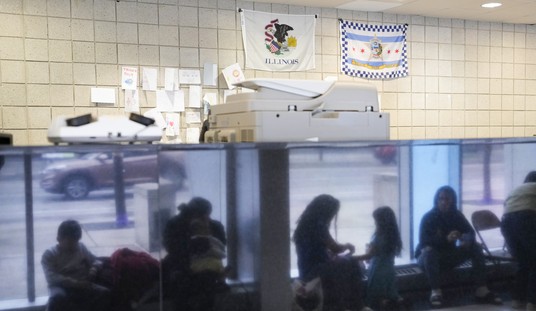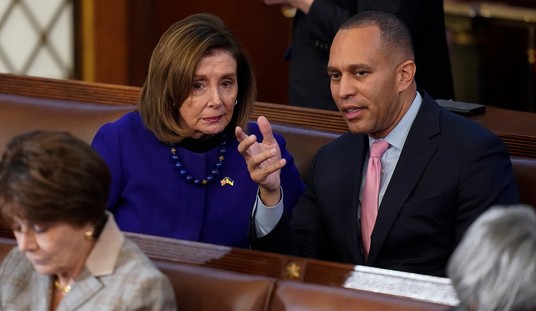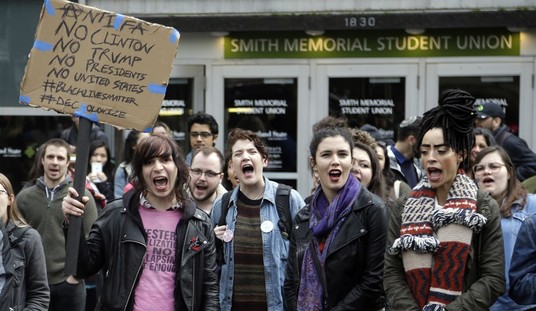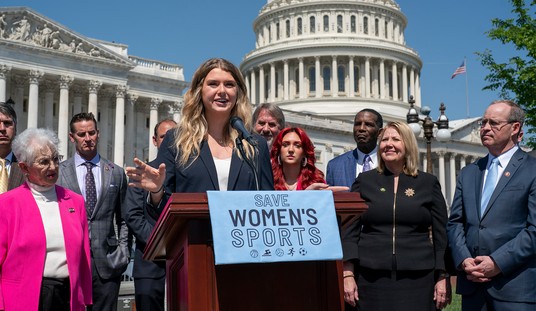As Jim Geraghty points out, this answers the outlier from the Washington Post/ABC poll which put ObamaCare’s popularity at a virtual tie. Those results, coming at the end of a hard-sell by the White House to get people to sign up before the end of the enrollment period, had been hailed as a sign that the Obama administration turned the political corner on its most prominent failure. The new Pew/USA Today poll shows that it’s still business as usual — and that voters will make this a priority in November:
A new national survey finds that 64% of Republican registered voters say a candidate’s stance on the health care law will be very important in their voting decision, compared with 52% of Democrats and 45% of independents.
The new national survey by the Pew Research Center and USA TODAY, conducted April 3-6 among 1,010 adults, finds more continue to disapprove (50%) than approve (37%) of the 2010 health care law. Last month, the balance of opinion was similar – 53% disapproved of the law, while 41% approved.
Six-in-ten (60%) voters who oppose the health care law say that a candidate’s stance on the health care law will be very important to their vote, compared with about half (48%) of voters who support the law.
The passion, in other words, won’t favor ObamaCare supporters. It especially won’t help with the independents that Democrats need to avoid a disaster in the midterms. Republicans in particular are fired up, and independents are deeply unhappy with ObamaCare as well. They give it a 34/54 approval rating, and see the law’s impact in worse terms than the nation as a whole. Overall, the positive/negative impact is 30/43, but it’s 26/47 among independents.
The White House wants to claim that the 7.1 million sign-ups announced by the Obama administration last week means that “the debate is over.” Actually, it’s just begun on whether those numbers are real, and what they mean. In my column for The Fiscal Times today (and picked up by Drudge), I compare two studies that came out over the last few days, and discover that the actual number enrolled for the first time for insurance looks a lot lower than the White House claim:
The first of the independent studies comes from the RAND Corporation, which studied the changes in the health insurance market between September 2013 – just before the rollout of the state exchanges – and the end of the open-enrollment period at the end of last month. …
Another 8.2 million more people enrolled in employer-provided health care, as 7.1 million left the “other” category and another 1.6 million left the individual insurance markets. Only 3.9 million actually enrolled in insurance plans through state or federal exchanges – not 7.1 million as claimed by Obama. That number falls far short of even the lowered expectations issued by HHS and the White House earlier this year.
Another study by prescription-coverage management firm Express Scripts strongly suggests that the new enrollees are a lot less healthy than the population at large, too:
Their new study shows, for instance, that the enrollees from state and federal exchanges have a 47 percent higher use of specialty medications than in commercial plans in general. “Increased volume for higher cost specialty drugs can have a significant impact on the cost burden for both plan sponsors and patients,” the report reminds readers. “Despite comprising less than 1 percent of all U.S. prescriptions,” the report continues, “specialty medications now account for more than a quarter of the country’s total pharmacy spend.”
The medications themselves show that the care costs will increase relative to the existing risk pools as well. The rate for HIV medications in Obamacare exchange plans is four times higher than in existing commercial plans. Medication prescriptions are 35 percent higher, and anti-seizure medication increases 27 percent. Ironically, the only category where exchange consumers have lower demand than commercial-plan customers is in contraception – the focus of a big political battle in the employer mandate.
What does this mean? It means that insurers will have to come back in 2015 with massive increases in premiums, higher deductibles, or both. The ObamaCare structure depending on getting healthier people to sign up for comprehensive coverage in order to improve the risk pools. Instead, just as its critics predicted, it has added more costs and risks to those risk pools, and insurers will have to adjust for that in the next round of premium hikes.
And, by the way, how many of those newly insured now in Express Scripts coverage from state and federal exchanges had a 2013 policy?
Of those who enrolled in an exchange plan, Express Scripts finds, 43 percent already had Express Scripts coverage in 2013 – and at least some of the other 57 percent may have had coverage under another prescription-medication management service. If the total number of actual exchange enrollees is 3.9 million, the final number of previously uninsured exchange consumers may be only as high as 2.23 million.
The debate on ObamaCare isn’t over, and neither is the debate on the White House’s credibility.
Let’s give Andrew Klavan the last word. His premiere video for Truth Revolt asks whether we’re hearing ObamaCare truth, lies, or complete crap:
I’m pretty sure we don’t need a poll to answer that question.









Join the conversation as a VIP Member